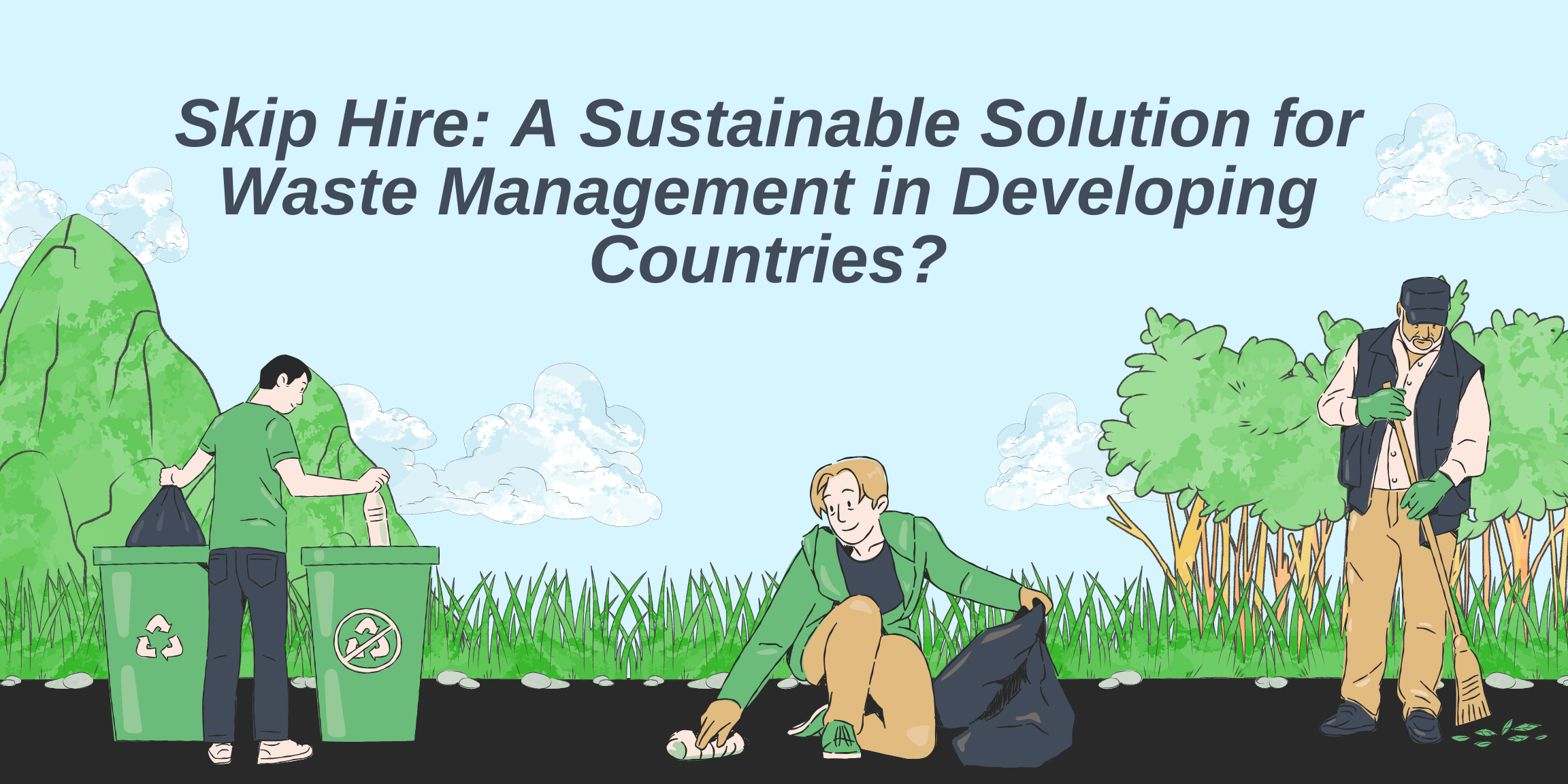October 17, 2024
Skip Hire: A Sustainable Solution for Waste Management in Developing Countries

Skip Hire: A Sustainable Solution for Waste Management in Developing Countries?
The issue of waste management is a pressing concern for developing countries around the world. With rapid urbanization and growing populations, these nations face challenges in dealing with the increasing volume of waste generated. Traditional methods of waste disposal, like open burning or dumping in landfills, often lead to environmental pollution and health hazards.
Skip hire services, a popular waste management solution in developed countries like the UK, could potentially play a significant role in tackling waste issues in developing nations. But how effective are they, and what are the specific challenges and opportunities?
Understanding Skip Hire and its Benefits
Skip hire involves renting a large container, called a skip, for temporary on-site storage of waste materials. Once filled, the skip is collected by a licensed waste disposal company for processing and disposal. This method offers several advantages:
- Convenience and Efficiency: Skip hire simplifies waste collection, especially for large projects like construction or renovations. It eliminates the need for multiple trips to landfills and reduces the risk of littering.
- Responsible Disposal: Skip hire companies ensure waste is disposed of according to regulations. This minimizes the risk of environmental contamination and promotes responsible waste management practices.
- Potential for Recycling: Many skip hire providers offer waste sorting and recycling options. This diverts valuable materials from landfills and promotes a more sustainable waste management approach.
The Potential of Skip Hire in Developing Countries
Developing countries can benefit from skip hire in several ways:
- Improved Sanitation: Skip hire can help control litter and waste accumulation, leading to cleaner streets and a healthier environment for communities.
- Reduced Reliance on Landfills: By diverting waste from landfills, skip hire can help extend their lifespan and minimize the environmental impact of overflowing landfills.
- Promoting Recycling: By offering sorting and recycling options, skip hire companies can encourage a shift towards a more circular economy in developing countries.
Challenges to Implementing Skip Hire in Developing Countries
While skip hire offers promising solutions, there are challenges to consider:
- Cost: The cost of skip hire services might be a barrier for some individuals and businesses in developing countries.
- Infrastructure: The lack of proper road networks and waste processing facilities in some regions can hinder the efficient operation of skip hire services.
- Informal Waste Collection: Existing informal waste collection systems in many developing countries might need to be integrated or addressed for skip hire to be fully effective.
Addressing the Challenges and Moving Forward
Here are some ways to address the challenges and promote the successful implementation of skip hire in developing countries:
- Government Support: Governments can incentivize skip hire services through subsidies or tax breaks, making them more accessible to a wider range of users.
- Public Awareness Campaigns: Educational initiatives can raise awareness about the benefits of responsible waste management and encourage communities to utilize skip hire services.
- Collaboration with Informal Waste Pickers: Integrating informal waste pickers into the skip hire system can create employment opportunities while promoting efficient waste sorting and recycling.
- Investment in Infrastructure: Developing proper waste processing facilities and infrastructure is crucial for ensuring the long-term sustainability of skip hire services.
Conclusion
Skip hire has the potential to be a valuable tool for improving waste management in developing countries. However, a successful implementation requires addressing cost concerns, infrastructure limitations, and integrating with existing waste collection systems. Through collaborative efforts from governments, waste management companies, and local communities, skip hire can contribute to cleaner environments, reduced landfill dependence, and a more sustainable future for developing nations.
